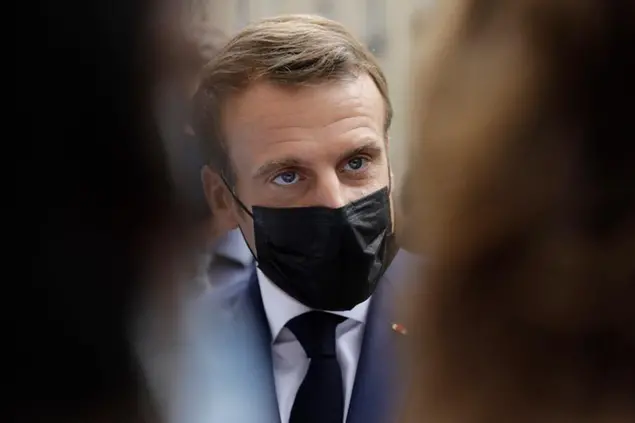Thanks to the European Parliament, the French Presidency may have a legacy of limited success. But it did not show a visionary leadership on the climate issue
We are in the final week of the French Presidency of the EU and the analytical community is turning its attention to assessing Paris’ performance on different files. When it comes to climate, after a G7 which resulted in reinstating the idea of investment in gas infrastructure as an ‘appropriate temporary response’ in view of the energy crisis, all eyes will be on the vote next week in the European Parliament as to whether commitments on what constitutes green energy might weaken at EU level to. If the EP votes to object to the Commission’s delegated act on taxonomy, this, along with the commitment to ending the use of the combustion engine in cars by 2035, will offer the French Presidency a legacy of limited success as a climate leader, despite having initially pushed for the inclusion of both nuclear energy and gas. Still, the fact remains that divisions have been papered over rather than resolved, and consequently, climate ambition has been watered down during the last six months.
To some extent the French Presidency was handed a poisoned chalice on climate since it was charged with brokering agreement to the Fit for 55 legislative package – the tools to implement the European Green Deal (EGD). Finding a compromise on this set of proposals between member states, which shared the costs of the EGD reasonably, between industry, households and the public purse, when member states are so divided on what the right balance is, was always going to be a Herculean task. But given the scale of the challenge, a larger, influential member state presidency had more chance of achieving it than a small one.
There were no tailwinds offered to Paris’ responsibility to drive forward implementation of the EGD from the broader geopolitical context either. Russia’s war in Ukraine and the reality that Europe urgently needs to diversify its energy dependencies has meant that European leaders’ first focus is on a geographical energy transition. With soaring energy prices, industries, individual consumers and national governments are even more resistant than prior to February 24th to bearing the inevitable interim costs of decarbonising Europe’s economies now.
What could have made the difference to this picture is visionary leadership from the French presidency: building a clear narrative on the necessity of genuine energy security being rooted over the longer term in clean sources. Since the outbreak of Russia’s war, the EU’s determination on decarbonisation has faltered; its political leaders have been unsure whether they can or should still try to advance both geographical and substantive energy diversification at the same time.
A second cornerstone of EU climate leadership that has been lacking in recent months is a more explicit acknowledgement from national capitals and Brussels that in this crisis moment, as with the covid crisis two summers ago, there is a need to “do whatever it takes” including further borrowing, in order to finance the investments needed to rapidly scale up the clean energy as foreseen in the RePowerEU plan. France has greater potential than it has shown on this leadership gap too. It has often in the past played the role of a bridging power – between Germany and the frugal states on the one hand, and the EU’s southern and eastern budget beneficiary states on the other.
But though the battle for a just EGD implementation in a fearsome geopolitical environment is not yet won, neither is it lost. The next decade will be critical to keep climate neutrality by 2050 in sight, and consensus within the EU will have to be re-brokered around every step in that rocky path. Unwavering leadership to keep minds focussed on the end goal will remain vital throughout the coming years. As France hands the mantle onto the Czech presidency, it should commit to partnering and supporting upcoming presidencies to drive climate action forward.
Susi Dennison is the director of ECFR’s European Power porgramme.
© Riproduzione riservata


